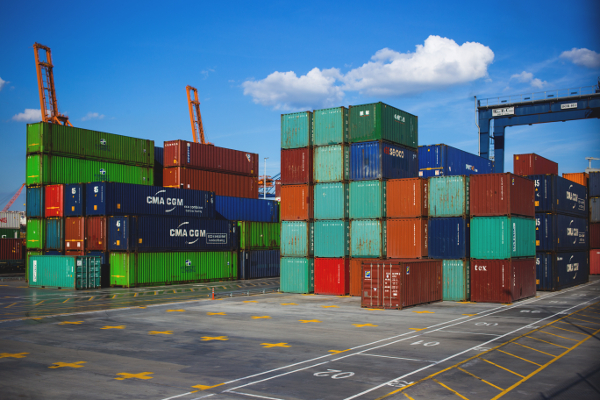After Brexit, trading certain goods within the European Union will require that importers and exporters make some new mandatory customs declarations. It is estimated that there will be a five-fold increase in these customs notifications, meaning some 255 million declarations will be made a year. The number of companies making such declarations is also expected to double – to more than 270,000.
Currently, in most cases, these customs licences are not required for shipments between countries in the EU, so this is a significant change for most traders.
To counter these issues and to speed up the supply chain, the HMRC is spearheading a drive to encourage companies within the supply chain to achieve Authorised Economic Operator (AEO) status. It is estimated that only 0.2% of UK traders currently have AEO status. So, after Brexit, when trading within the EU, non-certified AEO companies will face customs controls that could place them under significant administrative burden and risk substantial trading delays.
What is AEO status?
Authorised Economic Operator (AEO) status is an internationally recognised indicator of quality. Companies that achieve AEO status will have demonstrated that their “role in the international supply chain is secure, and that [their] customs controls and procedures are efficient and compliant.” (as per HMRC guidance). Certification gives traders access to key customs facilitations without having to face the full weight of customs requirements. In some cases, companies will be able to ‘fast-track’ their shipments “through some customs and safety and security procedures.”
It is not a mandatory status, but it does bring many benefits – and it will be especially beneficial after Britain leaves the EU – so companies within the supply chain are being encouraged to voluntarily work towards achieving compliance.
There are two types of status:
- AEOC, which helps with customs simplification; and
- AEOS, which is for security and safety.
A company can apply for status in either of them, or in both.
Status assures that a company meets various conditions and criteria. Certified companies:
- Comply with customs and taxation legislation and have not committed any criminal offences relating to their trade (AEOC and AEOS)
- Keep appropriate commercial and transport records (AEOC and AEOS)
- Are financially solvent (AEOC and AEOS)
- Have professional qualifications or can demonstrate practical standards of competence (AEOC status only)
- Have appropriate suitable safety and security measures and standards, covering: access controls and physical integrity; logistical processes and the handling of specific types of goods; personnel and identification of business partners (AEOS status only)
Companies using any of these customs procedures should apply for the new AEO certification: Customs Freight Simplified Procedures (CFSP), Bonded Warehousing, Inward Processing (IP), Outward Processing (OP), and Processing Customs Control (PCC).
What are the benefits of AEO status?
AEO status brings a number of benefits to the companies involved – whether they are a freight forwarder, a manufacturer, an importer, an exporter, or a carrier – as well as to the international supply chain as a whole.
Certification eases the administrative burden for a company. For example, AEOC status simplifies the declarations procedure.
It will also speed up the supply chain as shipments are fast-tracked through customs control. The more constituent companies of any supply chain that have AEO status, the quicker goods will be able to move across borders. The aim is for all of the supply chain to be registered within the scheme, in order to optimise the speed and efficiency of international trade.
AEOS status will improve the security of the supply chain. Certified companies benefit from a lower risk score, which means they would be less likely to be subject to physical and documentary checks by customs. And there will be fewer requirements for approved companies to provide certain mandatory declarations.
Indirectly, AEO status will confer a reputation that a company is a safe and secure trading partner. It will improve dealings with Customs, expedite shipments, and improve customer service and relationships with end buyers. And speeding up the supply chain will improve a company’s cash flow.
It is also anticipated that widespread adoption of AEO standards will mean that security within the international supply chain will be enhanced, and a mitigation of the effects on traders from acts of terrorism, piracy and theft.
How can a WMS help you achieve certification?
A warehouse management system (WMS) such as HighJump WMS can help a distributor to become compliant and to therefore meet the AEO certification requirements.
To help with keeping appropriate commercial and transport records, the WMS provides an audit trail with clear date and time stamping of transactions. The WMS can also ensure that appropriate security and safety standards are being met – perhaps via FIFO rotation of stock, or batch traceability of food products.
When it comes to bonded controls, a WMS is invaluable in reporting on bonded and unbonded stock. And electronic advanced shipping notices (ASN) provide greater accuracy and transparency with shipments, especially for international trades.
Next steps?
One of Balloon’s major customers is already some way along the path towards achieving compliance, and we’d urge all our customers to at least look into AEO as soon as possible.
HMRC’s aim is for the whole of the supply chain to become registered and the race is certainly on for compliance. After 29th March 2019, any supply chain operator without AEO certification will be at a significant disadvantage against its competitors.
